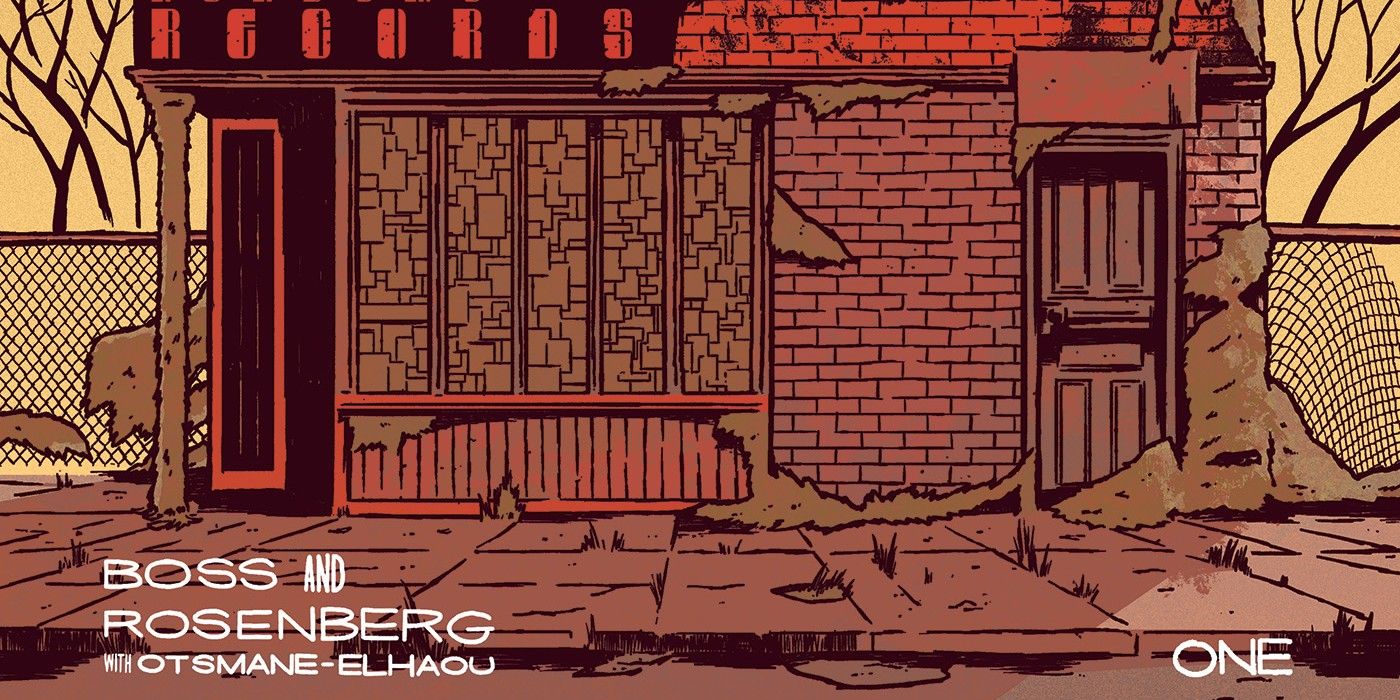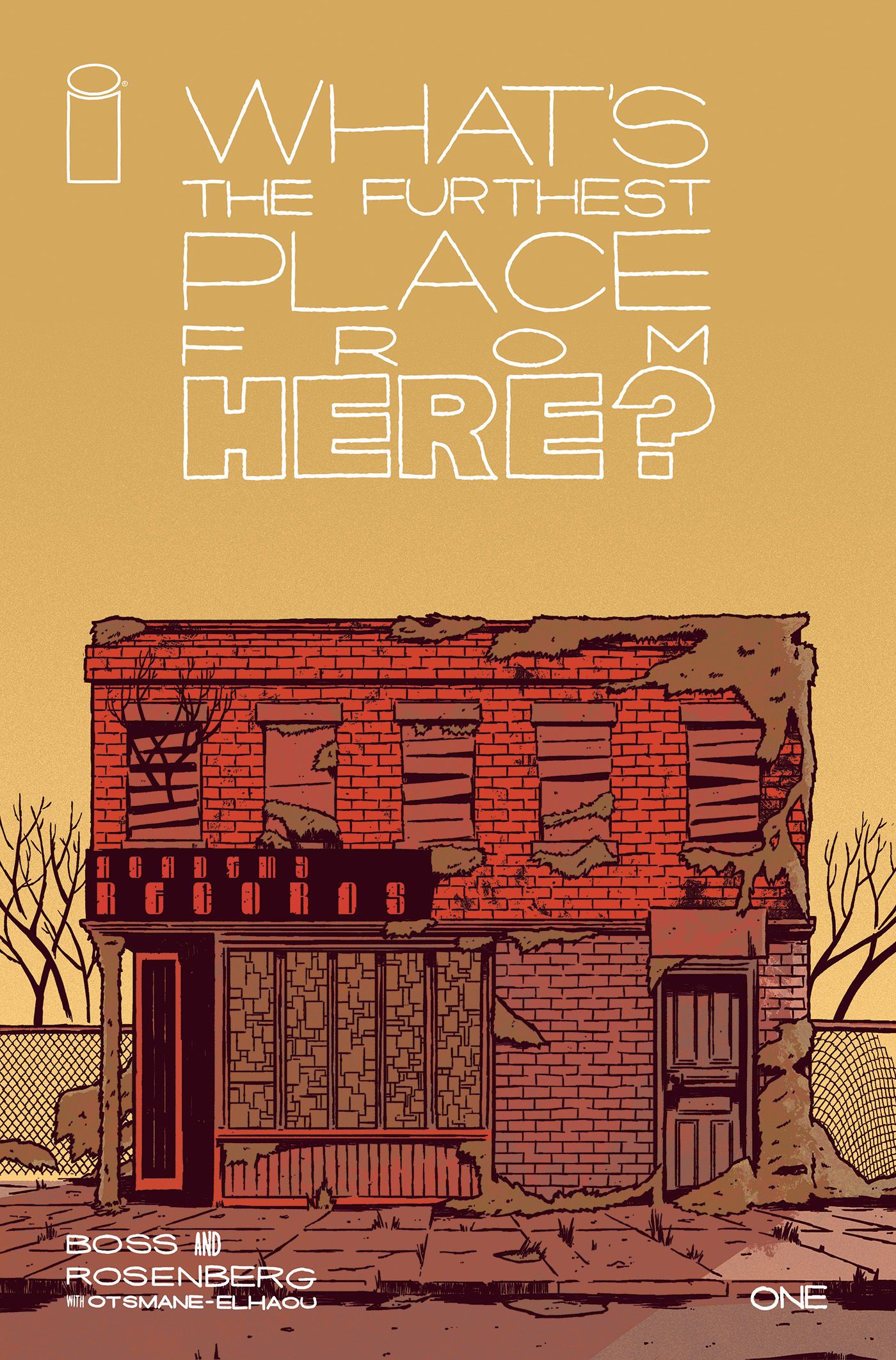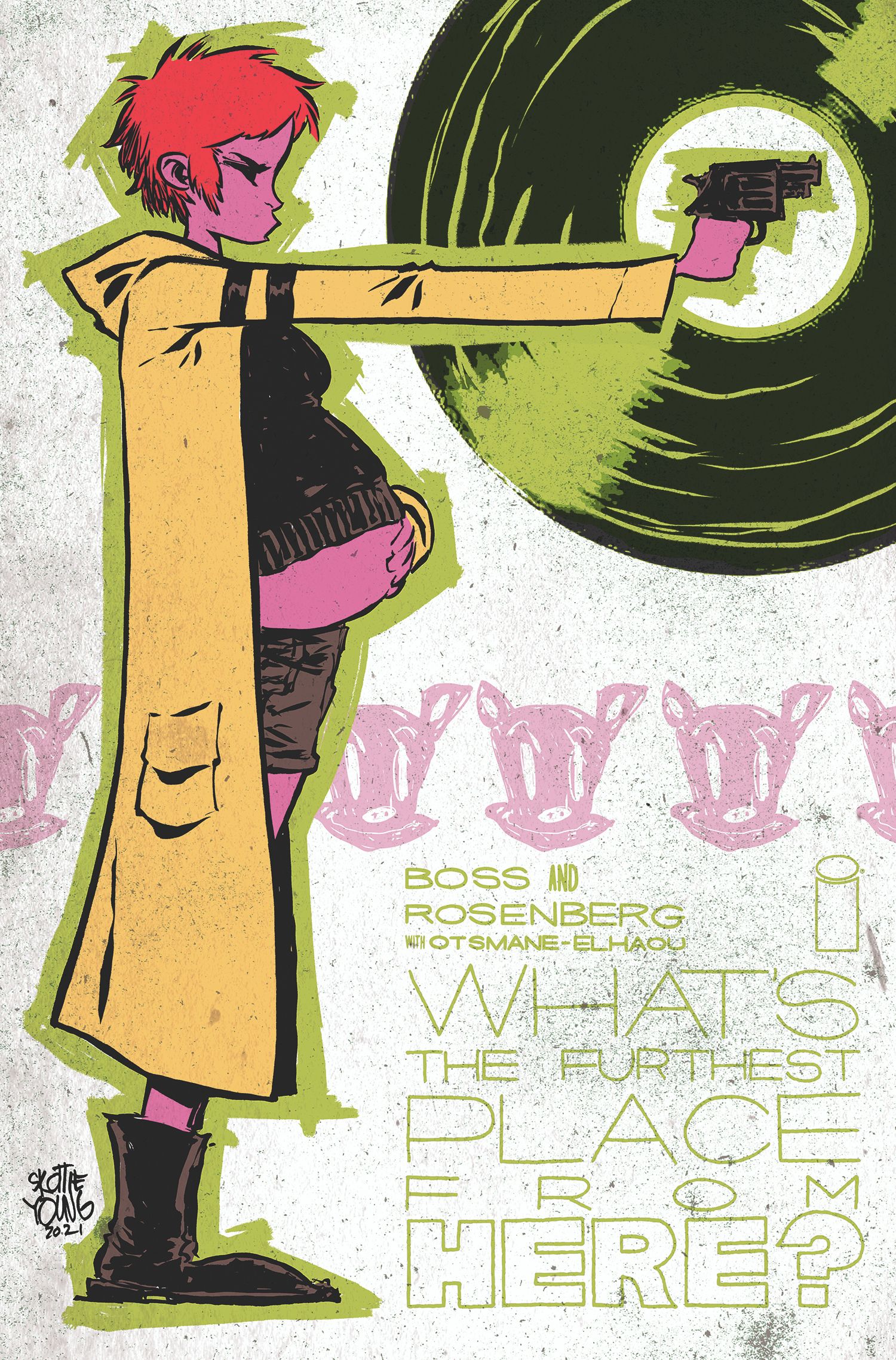After teaming up on the acclaimed comic miniseries 4 Kids Walk Into A Bank, co-creators Matthew Rosenberg and Tyler Boss are reuniting for a new Image Comics series, What's the Furthest Place From Here? In the upcoming title, gangs of children wander across a post-apocalyptic wasteland and band together over a love of music through the records that survived the collapse of civilization. In addition to launching a super-sized debut issue on Nov. 10, Rosenberg and Boss are also collaborating with musical artists to release a limited-run of vinyl singles alongside each issue. Each vinyl will be thematically linked to its corresponding issue and available to purchase exclusively at comic shops and in preorder bundles.
In an exclusive interview with CBR, Rosenberg and Boss shared the origins of this unique project, reflected on the similarity between the comic book and vinyl record communities, and getting Jawbreaker's Blake Schwarzenbach to collaborate on the first issue's musical single with Joyce Manor. Also, included with this interview is a look at the standard cover for What's the Furthest Place From Here? #1 by Boss, and the first issue's variant cover by Skottie Young.
Let's start at the beginning: How did the idea for What's the Furthest Place From Here? first come about?
Matthew Rosenberg: Wow. Putting the question mark in our title really makes questions about our book confusing, eh?
...Anyway, the idea came about while Tyler and I were still working on 4 Kids Walk Into A Bank. We knew we wanted to do something else and we knew we wanted to do something different. The more we talked about it and planned the more we realized we were sort of collecting all the stuff we love that we didn't get to do in that book. Big world-building, sci-fi, epic adventures, bits of horror and mystery, all that stuff. We wanted to build something big and open that could only be an ongoing comic. And we wanted to do it all and still make sure it's character-driven and funny and still felt like us.
Tyler Boss: Part of what's annoying about being around us is that our conversations are a bit like a deconstructed sandwich. We'll start telling one story, which reminds one of us of a different story, which reminds us of another story, before we circle back to the previous bit, before finally arriving at the conclusion of the thing we were talking about in the first place. That's every conversation. They take hours and are exhausting. But more to the point of the idea specifically, "Where" it came from, at a gas station somewhere between New York and Chicago in 2018.
Music and vinyl records play a HUGE role in this story and project beyond the printed page. What was it about vinyl, in particular, that you wanted to celebrate in this comic?
Rosenberg: For me, there is this incredible commonality between comics and records. Obviously, music and sequential storytelling exist in many formats, but for me, nothing will ever beat the warmth of a record or the touch of a single issue. The feeling of dropping a needle on a new record or flipping open a book for the first time. They are just transportive beyond what is contained on and in them. I could go on and on about the shared experience of comic collectors looking for perfect spines and variant covers and record collectors looking for clean records and colored vinyl, crate digging and longbox digging, or just the shared culture of the record store and the comic shop. But I think it goes beyond all that too.
I get really sentimental about this but for a lot of people, both are sort of gateways to adulthood. Discovering comics and discovering music, buying your first comics and records, for so many people were these defining choices. I know they were for me. They were the first chance to begin to assert my own taste, my own individuality, and sort of figure out what I liked, what I supported. Both can be paths to different cultures and subcultures. I'd go to school and get my ass kicked because I was a nerd for reading X-Men comics in the corner by myself, and then a few years later I'd get my ass kicked for listening to Bad Brains in that same corner. But I could go to the comic shop and the record store and be around my people, and that is a feeling I never let go of. There is something so deeply personal about it all. It doesn't matter how many people are reading or listening, how many copies it sold. If you get it you get it and nothing else matters. The right record or the right comic can change your life, maybe even save your life if it comes along at the right time.
So we wanted to make a story about all of that.
Tyler, from chaotic fight sequences to punk rock freewheeling, what was something you wanted to convey in approaching the overall artwork for the story?
Boss: I wanted to try and bring something new to my storytelling that I haven't shown before. I'm such a formalist in my approach, but with Furthest Place, it really calls for bigger drawings and a wider lens, so to speak. The scale of our world and our characters in it is really important, so really trying to show that, without losing our little character moments was an important problem to meet. I also wanted it to look a bit off. I looked at a lot of landscape photographers like Todd Hido and Larry Sultan, artists who do a great job of mixing the banal with the surreal. I wanted our world to feel sort of matter-of-fact suburban with its weirdness.
Tyler, with every issue mixing up the soundtrack, what can you tease about how this approach will be reflected in the artwork?
Boss: There's an aesthetic to everything in the comic that operates in a no time kind of era that sort of the '70s, '80s, and '90s all at once. Without giving too much away about the music side of this, the soundtrack sort of goes hand in hand with that idea.
Given the punk rock aesthetic of the book and your clear love of the genre, how was it getting to work with Jawbreaker's Blake Schwarzenbach?
Rosenberg: All of the bands and artists giving us songs have been amazing and we're so honored that they trusted us with their music. But Blake felt pretty special. Jawbreaker is one of the most important bands in the world to me. Some bands just feel like "yours" no matter how many other people like them, and Jawbreaker was always that to me. When we decided to... Borrow the title of our book from one of their songs I realized I personally sort of needed to tell them. We have some friends in common so I reached out and Blake was just so incredibly kind and supportive. We ended up talking about old Marvel comics and our book and the music that influenced it. He reached out to the rest of the band and talked to them and they all gave us their blessing, which meant the world to us. Anyway, we ended up having such good conversations I just said fuck it and I asked if he'd consider doing a song for us. He wrote back right away that he had something in mind that might be perfect. A few weeks later it just pops up in my inbox and it blew me away. I don't want to talk too much about it because I want people to experience it for themselves, but I must have listened to it 50 times in a row. I couldn't ask for a better contribution to our little project.
As a fun aside, what vinyl is the fondest piece of your record collection?
Rosenberg: I don't have kids but that feels like asking a parent who their favorite child is. Except while I think most parents lie and say they can't choose, I really can't. I have a real attachment to the Jawbreaker Whack & Blite 7". Inside Out's No Spiritual Surrender was one of the first hardcore records I ever bought and it blew my mind. I have a rare edition of Faith No More's King For A Day album in a 7" box set with interviews on the b-sides. I had to do a lot of dumb stuff to get that. But honestly, the record I love the most is probably Bruce Springsteen's Nebraska LP. It was my father's and I used to sit in his office and play with my GI Joes while he'd listen to it endlessly on repeat while writing. It's a perfect memory tied to a perfect record.
Boss: One of the first bands I ever fell head over heels in love with was Modest Mouse. I was ten years old and my brother was watching Austin City Limits on PBS and they were playing. They mesmerized me and have been my favorite band to this day. In a weird bit of serendipity, the day that Matt and mine's book 4 Kids Walk into a Bank first issue came out I was in a comic shop and they had the first pressing of This Is a Long Drive for Someone with Nothing to Think About. I didn't even own a record player at the time but I needed it regardless. It's also not lost on me, ours, and Modest Mouse's propensity for long titles.
Written by Matthew Rosenberg and illustrated by Tyler Boss, What's the Furthest Place From Here? goes on sale Nov. 10 from Image Comics.



